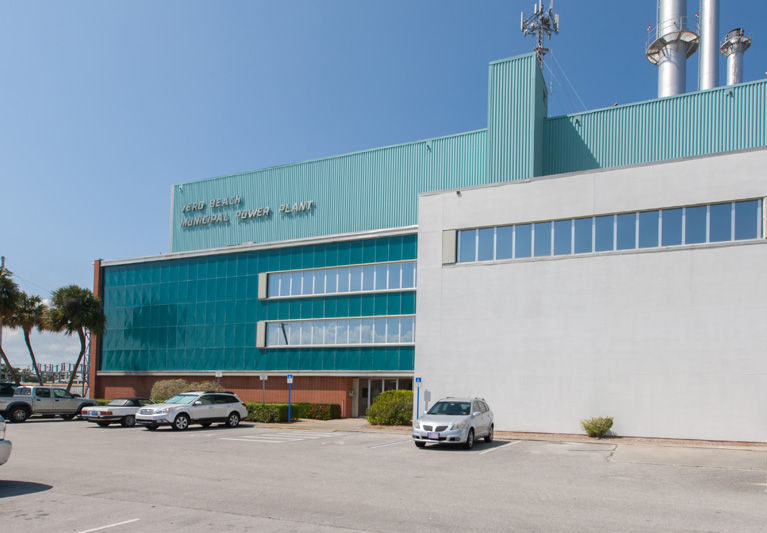
VERO BEACH — The response of Tallahassee’s city-owned electric system to Hurricane Hermine has come under fire, as power crews from Florida Power and Light and Duke Energy were not allowed to help with repairs and reportedly sat idle six days after the storm left 100,000 without power.
Vero Beach, however, says its city-owned electric system would be able to accept such aid after a storm.
On Sept. 7, the Sunshine State News ran the headline, “Utility Workers Still ‘Standing Around’ Waiting for OK to Begin Power Work in Tallahassee,” along with a story alleging that the non-union workers from the two big investor owned utilities were for some reason not allowed to help restore power to the one-third of the city’s customers in the dark.
“Fallen trees downed power lines, sending most of the city into darkness. Reviving the city’s electrical grid has happened bit by bit, but some citizens say trucks still have yet to be seen in their neck of the woods – and they’re starting to get antsy. In fact, some of those trucks were said to be turned away . . . [including] some from Florida Power and Light, the state’s third largest utility company, which offered to send 575 restoration workers to Tallahassee to help. Duke Energy also offered assistance,” the report states.
It goes on to say, “Much of the criticisms about the lack of electricity are focused directly on Tallahassee Mayor Andrew Gillum himself, who is rumored to have turned power companies away when they tried to provide much-needed assistance to get the city lights back up and running. The reason, many said, was because the power companies weren’t unionized – a criticism Gillum fiercely rejects.”
The city was assisted by some of its sister Florida Municipal Power Agency and Florida Municipal Electric Association members, and by Gulf Power.
Vero is also a member of the FMPA, but in 2012 opted not to renew its $35,000 annual membership in FMEA – the co-op’s political wing – because FMEA officials were actively opposing Vero’s efforts to sell its electric utility to FPL. At that time, City Manager Jim O’Connor and power managers brokered separate arrangements for back-up in case a storm overwhelmed Vero’s crews.
“We have a couple of contracts for emergency and back up line crews and there is nothing in our union contract that restricts who we can or cannot use,” O’Connor said when asked about potential contractual restrictions in the Teamsters collective bargaining agreement to accepting help from, say, neighboring FPL crews. Many FPL workers belong to a different, non-Teamster union.
The city’s former membership agreement with FMEA – initially executed in 1982 for mutual aid and provided in response to a records request by City Clerk Tammy Vock – includes no language limiting member cities from accepting help outside the municipal electric fold, and FMEA Executive Director Barry Moline verified that.
“FMEA coordinates statewide mutual aid for public power utilities. There are no limits whatsoever on the resources members decide to use,” Moline said in an email.
“We only find who has resources available and present options to them. It is up to the individual local utility to choose the resources they believe match their needs. We consider and present line workers from public power, private utilities and private contractors. In this hurricane, Gulf Power provided about one-third of the mutual aid resources to Tallahassee. “
Power crews eventually got the lights back on for all but a few Tallahassee customers. Moline denied union status had anything to do with accepting or not accepting aid from FPL and Duke. “This is not a factor. In fact, I don’t have a record of who is union and who isn’t,” Moline said.
Vero electric has faced steadily declining reliability due to the postponement of maintenance and capital improvements to the system that were deferred when the city expected to sell the utility. To catch up, the city is in the process of spending about $21 million to bolster reliability and harden equipment in case a storm comes our way.
City officials last week declared that reliability of the transmission and distribution system – in the absence of Big Blue to crank up and provide emergency power during periods of congestion and downed feeder lines – is now the number one utility priority, more critical than efforts to reduce rates.
One of the first steps the city took this summer was to procure and install equipment that would automatically switch Indian River Medical Center from being served by one substation to being served by a different substation in case of a major malfunction, to get the hospital fully operational as soon as possible.



